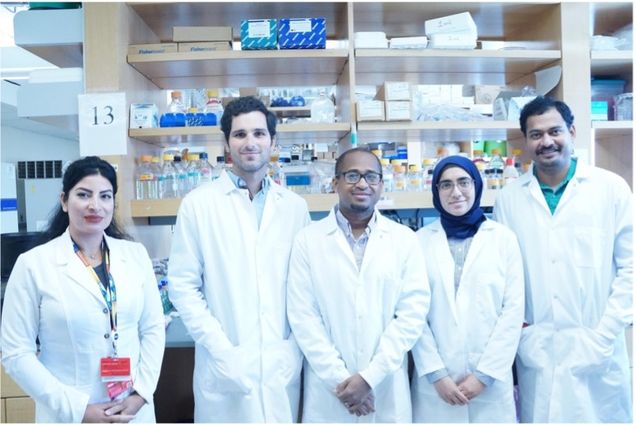GMS PhD Spotlight: Guillermo Arroyo Ataz
 Guillermo Arroyo Ataz is a Pathology PhD candidate in the lab of Assistant Professor of Pathology & Laboratory Medicine Dennis Jones, PhD. His research focuses on studying the developmental origin of cells of the lymphatic system. Guillermo defended his dissertation, “Characterization of Mesodermal Origins of Lymphatic Muscle Cells,” in March 2024 and will graduate in May 2024. Read more about Guillermo below!
Guillermo Arroyo Ataz is a Pathology PhD candidate in the lab of Assistant Professor of Pathology & Laboratory Medicine Dennis Jones, PhD. His research focuses on studying the developmental origin of cells of the lymphatic system. Guillermo defended his dissertation, “Characterization of Mesodermal Origins of Lymphatic Muscle Cells,” in March 2024 and will graduate in May 2024. Read more about Guillermo below!
What did you complete your dissertation research on and how did you settle on that topic?
My dissertation research is mainly focused on elucidating the developmental origin of cells of the lymphatic system. This involves looking at the processes that take place during embryonic development and identifying the stem cells that give rise to our cells of interest. This knowledge could be potentially used to treat diseases derived from lymphatic dysfunction, like lymphedema. Because I am very passionate about stem cells and regenerative medicine, this topic was ideal for me. Vascular biology is also very involved in the development of therapies for a large array of diseases, including cancer, which my lab also works on. The vascular focus of my dissertation topic was also an important factor in my decision to study the development of the lymphatic system.

Why did you choose to do a PhD?
I thought that the best way to become a rigorous scientist was to pursue a complex scientific question in the context of academia. Additionally, I wanted to acquire the skills required to develop novel therapies and overall, improve patients’ lives.
How would you describe a typical day as a PhD student?
In the morning, I usually harvest and/or stain samples from mice. These samples are lymphatic and blood vessels that we stain for different proteins to identify specific cells and to characterize them. In the afternoon, I often image stained samples harvested a week prior using a confocal microscope. I also spend a lot of time analyzing the images I take and designing new experiments.
What is one of your best memories from the time in your PhD?
Any day in which I got new data was memorable and happy.
Did you face any unexpected challenges during your time in your program? How did you overcome them?
Like everyone else in science, I experienced a lot of frustration because of experiments that failed or did not yield the expected results. Sometimes an accumulation of these “failed” experiments can have a big impact on moral and make you question yourself, your project, or even your career. Taking a step back always helped me overcome these situations. For me, this involves revising my protocols and data sets to make sure everything has been done correctly. If that is the case, then I know I did everything in my power to make the experiment work, and I attain a much better mental state to make decisions about what the next step is.
What are your next steps and your plans for your future?
During my PhD, I won a medical innovation competition at BU with a novel concept for a medical device. I really enjoyed learning about the commercial and clinical feasibility of a product derived from research. For my next steps, I would like to be more involved on the business side of the life-science industry. I will continue as a scientist for a while, but I would like to transition eventually so I can start my own company.
Do you have any advice for future PhD students or anything else you would like to share?
I would just recommend doing plenty of activities outside of the PhD to avoid tunnel vision. Some of my best breakthroughs came to me outside of the lab.
What do you like to do for fun in Boston?
I do a lot of things for fun, but those that are unique to Boston are running around the Esplanade and going to Red Sox games.